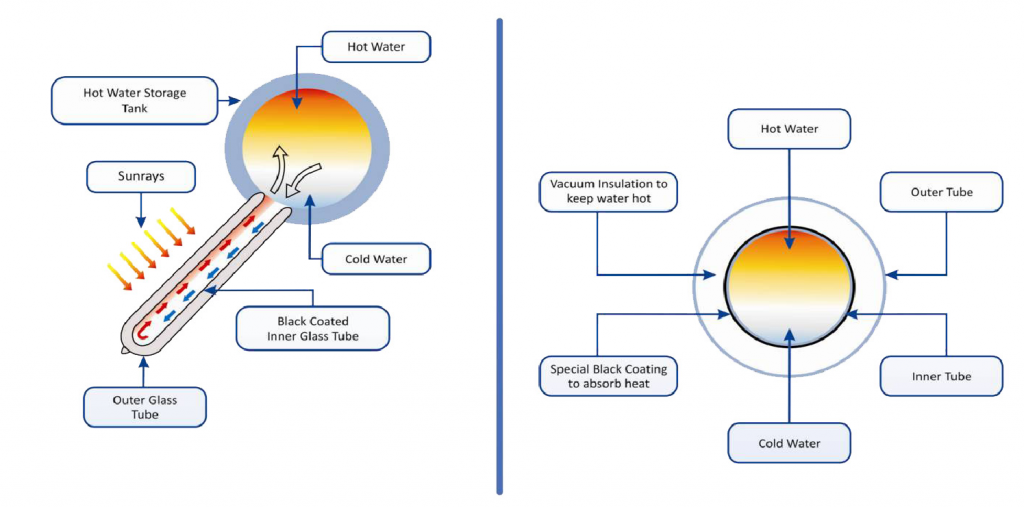Tapping Renewable Resources
페이지 정보
작성자 Terri 댓글 0건 조회 3회 작성일 25-04-20 01:16본문
Removing reliance on non-renewable energy sources through solar water heaters is a promising and cost-effective approach to mitigate the impact of over-reliance on non-renewable resources. The growing concern about climate change and depleting energy sources has directed the world towards renewable energy.
Solar water heaters, a type of solar thermal energy, use solar radiation to heat water for various purposes including domestic use. This sustainable technology is considered an attractive solution for global energy challenges as it requires increased efficiency, can provide heated water during on-site generation, and can be easily scaled up or down in terms of power and capacity.
A well-designed thermal energy system consists of a solar collector a storage tank a circulating pump and a storage tank. The heat exchanger is the key component of the system, absorbing and converting natural heat into energy. The solar water heater works in two phases: the thermal phase and the cooling cycle. During the heating phase, the key component heats the water in the circulating pump, and in the rejection phase, the heated water is pumped into the household for actual use. Conventional solar thermal systems also improve output by using a second heated fluid to heat the system whenever possible.
Implementing massive solar water heater installations can significantly reduce the global electric power demand. Research indicates that, for every 1.2 MW of solar water heater capacity installed, the demand for grid energy from energy providers is decreased by at least 0.7-1.4 MW.
In developing countries, such sustainable solutions can save residents a significant amount of money on their utility bills.
It is estimated that widespread deployment of solar water heaters could reduce global electricity consumption by 11-21% by 2050, saving over $1.1 trillion in electricity costs.
With such truly beneficial benefits associated with solar water heaters, regulators worldwide should prioritize and invest heavily in developing solar water heater technologies, providing support for manufacturing and massive deployments.
However, current industries are lacking the market momentum on solar thermal technologies, driven primarily by the development and promotion of sustainable solutions. Regulators must therefore provide immediate attention and incentives to renewable energy sectors, besides focusing on reducing administrative burdens for business owners to step into the residential energy markets.
Increasing the demand for solar water heaters will also heighten employment prospects worldwide, and push down compensation in renewable energy industries while increasing profit margin expectations among the companies in this area. So the introduction of solar water heater technologies will undoubtedly prove instrumental for saving global electric power demand and making a significant impact in solving one of our most enduring environmental problems.
Solar water heaters, a type of solar thermal energy, use solar radiation to heat water for various purposes including domestic use. This sustainable technology is considered an attractive solution for global energy challenges as it requires increased efficiency, can provide heated water during on-site generation, and can be easily scaled up or down in terms of power and capacity.
A well-designed thermal energy system consists of a solar collector a storage tank a circulating pump and a storage tank. The heat exchanger is the key component of the system, absorbing and converting natural heat into energy. The solar water heater works in two phases: the thermal phase and the cooling cycle. During the heating phase, the key component heats the water in the circulating pump, and in the rejection phase, the heated water is pumped into the household for actual use. Conventional solar thermal systems also improve output by using a second heated fluid to heat the system whenever possible.
Implementing massive solar water heater installations can significantly reduce the global electric power demand. Research indicates that, for every 1.2 MW of solar water heater capacity installed, the demand for grid energy from energy providers is decreased by at least 0.7-1.4 MW.
In developing countries, such sustainable solutions can save residents a significant amount of money on their utility bills.

It is estimated that widespread deployment of solar water heaters could reduce global electricity consumption by 11-21% by 2050, saving over $1.1 trillion in electricity costs.
With such truly beneficial benefits associated with solar water heaters, regulators worldwide should prioritize and invest heavily in developing solar water heater technologies, providing support for manufacturing and massive deployments.
However, current industries are lacking the market momentum on solar thermal technologies, driven primarily by the development and promotion of sustainable solutions. Regulators must therefore provide immediate attention and incentives to renewable energy sectors, besides focusing on reducing administrative burdens for business owners to step into the residential energy markets.
Increasing the demand for solar water heaters will also heighten employment prospects worldwide, and push down compensation in renewable energy industries while increasing profit margin expectations among the companies in this area. So the introduction of solar water heater technologies will undoubtedly prove instrumental for saving global electric power demand and making a significant impact in solving one of our most enduring environmental problems.
댓글목록
등록된 댓글이 없습니다.